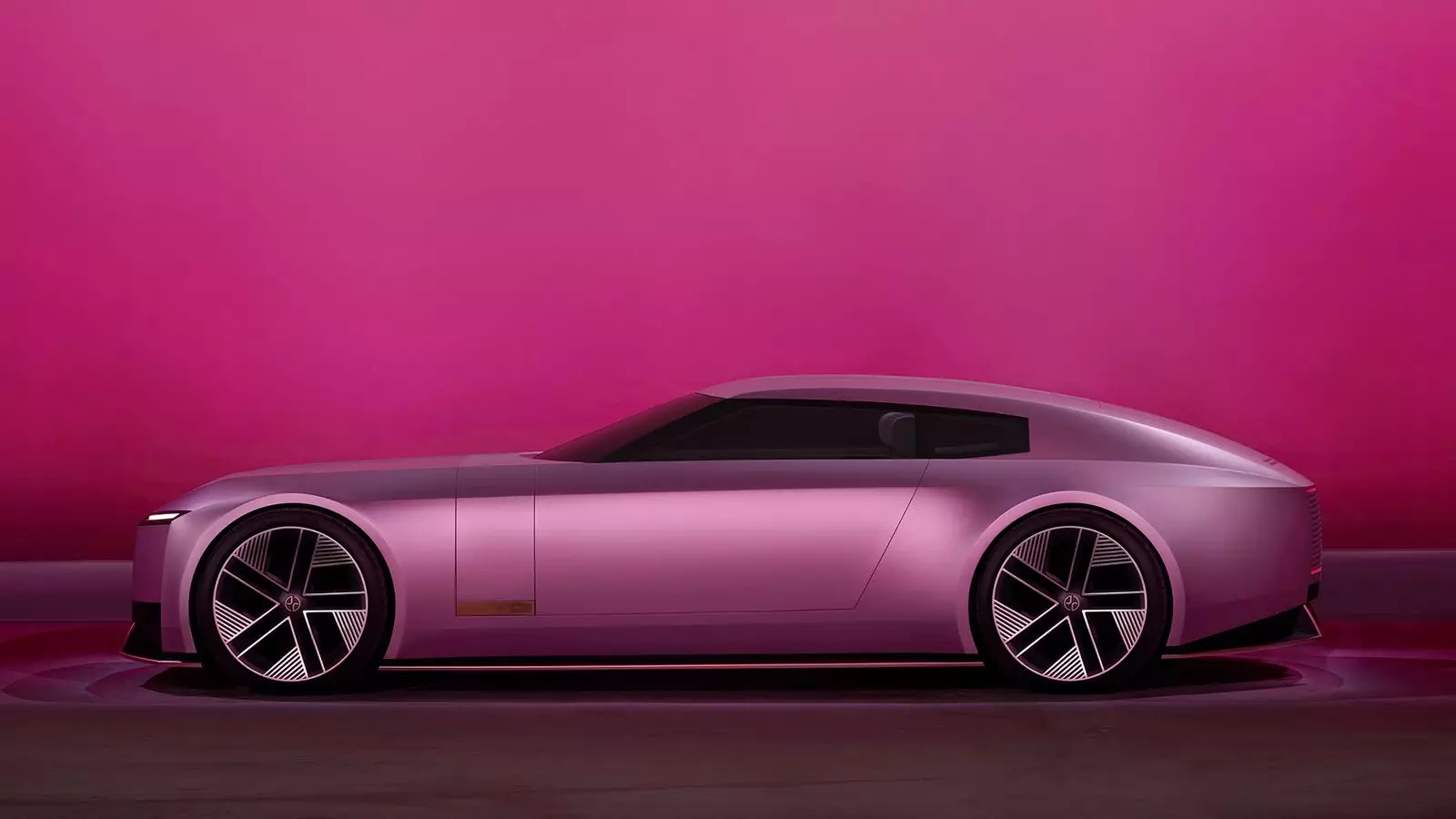In a daring move, Jaguar is reshaping its identity as it pivots towards becoming a fully electric brand. Managing Director Rawdon Glover recently elaborated on the company’s ambitions during an interview with Sky News, stressing the importance of being “bold and disruptive” in an industry that is rapidly evolving. The rebranding sparked considerable debate last month, capturing both appreciation and criticism as Jaguar aims to reinvent itself in a market that is increasingly defined by technological innovation and sustainability.
Jaguar’s unveiling of the Type 00 in Miami, Florida, marks a transformative step for the luxury automotive manufacturer. Glover’s statements highlight the company’s desire for the Type 00 to evoke excitement and set high expectations for future Jaguar models. This concept vehicle is not just another electric car; it’s designed to embody “bold forms and exuberant proportions,” suggesting a commitment to not only modern aesthetics but also to the spirit of luxury that has defined the Jaguar brand historically.
With this new model, Jaguar seeks to incorporate cutting-edge technology while also meeting the demands of eco-conscious consumers. The Type 00 promises an impressive battery range of up to 478 miles on a dedicated platform, placing it competitively within the burgeoning electric vehicle market. Notably, the rapid charging capability that allows for an addition of 200 miles in just 15 minutes underscores Jaguar’s commitment to convenience without compromising performance.
However, high expectations come with a price tag, and Jaguar anticipates that the production-ready version of the Type 00 will surpass £100,000. This strategy indicates that Jaguar aims to maintain its status as a premier luxury brand while navigating the complexities of electrification. Glover emphasized the need for Jaguar to remain “relevant, desirable, and future-proof,” showing an understanding that the shift to electric must not alienate the brand’s established clientele while also attracting new customers.
Despite the innovative developments, the rebranding campaign has not unfolded without friction. An advertisement released by Jaguar, showcasing models in colorful attire against stark landscapes and featuring no actual cars, has drawn sharp criticism. Online backlash was swift, with public figures like Nigel Farage and Elon Musk questioning the brand’s future and purpose. Glover acknowledged the controversy and the mixed reactions but maintained that the campaign was intended as part of a “transformed Jaguar brand” aimed at connecting with a contemporary audience.
There’s a precarious balance here: Jaguar is endeavoring to attract a new demographic while also keeping existing customers engaged. Glover expressed a desire to continue a dialogue with longtime fans, ensuring that their voices are heard in this transitional phase. This highlights the complex nature of brand evolution in an age characterized by fervent social media engagement and rapidly changing consumer expectations.
Looking forward, Glover aims to shift the discourse towards the actual merits of the Type 00 design and what it signifies for the future of Jaguar. While acknowledging that individuals will have differing opinions on both the vehicle and the rebranding efforts, he champions constructive conversation. As Jaguar traverses this transitionary landscape, the focus now becomes how this iconic brand will reconcile its illustrious past with the demands of an electrified future.
In an industry beset by changes and newfound challenges, Jaguar’s efforts to redefine its narrative could serve as a catalyst for broader discussions about luxury, sustainability, and innovative design in the automotive sector. As the discussion progresses towards the vehicle’s actual attributes, it remains vital for Jaguar to not only make a memorable impression but to substantiate it with excellence in performance and style, fulfilling the legacy of sophistication that its consumers expect.
Jaguar’s bold venture into electric vehicles is emblematic of a larger trend within the automotive industry. With an eye on legacy while embracing innovation, the carmaker is poised to navigate the complexities of modern consumer preferences and technological advancements. The road to the Type 00’s production may be fraught with challenges, but Jaguar’s commitment to transforming its identity may ultimately define its role in the future of electric luxury vehicles.

Leave a Reply